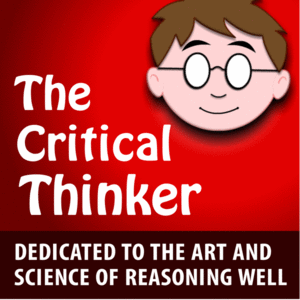Critical Thinking Involves Letting the Other Side Present Its Best Case
 Faculty often have their minds made up about what is good and bad. Thus teaching often involves the illogical comparison of best-case treatment of one side versus the worst-case representation of the other. We can’t forget that those we find abhorrent historically undoubtedly taught the same way, though from the other side.
Faculty often have their minds made up about what is good and bad. Thus teaching often involves the illogical comparison of best-case treatment of one side versus the worst-case representation of the other. We can’t forget that those we find abhorrent historically undoubtedly taught the same way, though from the other side.
But stacking the argument on one side isn’t in the students’ best interests, and it doesn’t reflect the centuries-old model of academic fairness. If ideas aren’t confronted in the classroom, they’ll later be dealt with in the give-and-play of the street. Then, with fewer acquired defenses, the likelihood of having beliefs overturned are much greater.
By Robert Baron
I believe educators have a responsibility to treat various interpretations of the truth as if a spokesman for one those interpretations were presenting it. Racism, sexism, fascism—these are not relatively recent movements that blossomed and then died, never to be heard from again. To have endured for so long, they must fulfill some need or desire in the human being, and they will not vanish just because we pretend they don’t exist or attempt to belittle them as freaks or anomalies of history.
If the educational system really intends to confront these philosophies, it should portray them as their devotees would, so as to re-create to some extent the emotions experienced by those who lived, or continue to live, by their precepts…
To fully believe in something, to truly understand something, one must be intimately acquainted with its opposite. One should not adopt a creed by default, because no alternative is known. Education should prepare students for the “real world” not by segregating them from evil but by urging full confrontation to test and modify the validity of the good. Then a choice can be made.
The ability to make wise choices born of reasoned contemplation of real alternatives should be a central goal of education; it is of crucial importance in the development of responsible citizens.
Comment by Brad Ford: Robert Baron’s “In Defense of ‘Teaching’ Racism, Sexism, and Fascism” appeared in the The Chronicle of Higher Education (2-9-81). I actually clipped this article over thirty years ago. Baron adds a qualification for religion: “Steadfast adherence to a belief is grounded in faith, not reason. Any any notion of a truth as absolutely correct, fixed, and unchanging flies in the face of the academic tradition that champions the pursuit of truth and leaves to religion the holding of final and dogmatic truths.”
Even so, religion needs all the help that it can get with students and adults, so it might welcome the opportunity to do more field testing of beliefs and ideas (as Baron argues above) in the controlled and supportive atmosphere of the church or religious academic world. It’s best to prepare students intellectually to identify and defend against challenges that will surely come. Who knows, maybe fewer young people will forsake their religion as they find themselves adrift in the highly secular world of public education.
Comment by Jackie: You would have liked my Father…his favorite quote was “Every man has a story to tell and it behooves you to listen.” He thoroughly agreed with your premise that choice should be made by intellectual research, listening and reading and talking, not just blindly following. In latter years, we called it “follow your heart”. But we studied too and if it didn’t “settle right” we didn’t do it. Yes always there will be the ism’s. I would like to live in a world where only positive and acceptance existed, until that happens we should visit both sides of every question. Critical thinking, logic, even learning the skills of debating should be taught more in schools. Jackie
 Faculty often have their minds made up about what is good and bad. Thus teaching often involves the illogical comparison of best-case treatment of one side versus the worst-case representation of the other. We can’t forget that those we find abhorrent historically undoubtedly taught the same way, though from the other side.
Faculty often have their minds made up about what is good and bad. Thus teaching often involves the illogical comparison of best-case treatment of one side versus the worst-case representation of the other. We can’t forget that those we find abhorrent historically undoubtedly taught the same way, though from the other side.